Confederate Truths: Documents of the Confederate & Neo-Confederate Tradition from 1787 to the Present.
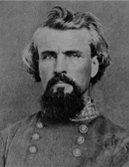

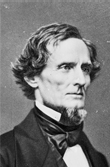
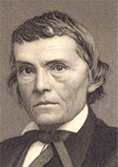


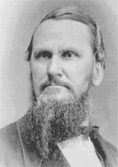
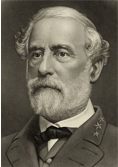
Farewell Speech of Hon.A.H. Stephens Delivered in Augusta, Georgia on Saturday, July 2, 1859, Wishes to reopen the slave trade with Africa and carve more slave states out of Latin America
Farewell Speech of Hon. A. H. Stephens Delivered in Augusta, Georgia on Saturday, July 2, 1859.
In the following speech there are the themes that will be repeated by Alexander Stephens, future Vice-President of the Confederacy in his infamous Cornerstone speech and in his speech to the Virginia secession convention of white supremacy over African Americans.
This is from pages 637-651, of the book, Alexander H. Stephens, in Public and Private, with Letters and Speeches, Before, During, and Since the War, by Henry Cleveland, National Publishing Company, 1866. What is interesting is that he states, often word for word and sentence for sentence the theme of his infamous Cornerstone speech which he was later to make when the slave states seceded. Also, interesting is Stephens arguing for the necessity to reopen the Transatlantic slave trade to get more slaves for future slave states which he expects to be carved out of Mexico, Cuba, and Central America.
Mr. President, Gentlemen of the Committee, and Respected Auditory:
For this demonstration, on my retiring from public life, I return you my unaffected and unfeigned thanks. The circumstances attending it—this imposing assembly—consisting, not only of so large a number of voters of the district, but of so many of the fair of the land—the mothers and daughters, who give honor by their presence—are well calculated greatly to enhance its appreciation. It is not every one who has been in public life so long as I have, that has been so fortunate as to receive such a compliment at its close. It was not an uncommon event amongst the ancients for public men to be ostracised and exiled, even by those who had elevated them to places of trust and distinction. But the testimonial now tendered comes not exclusively from that class of my constituents. This may, perhaps, be owing more to personal than to public considerations. Be that as it may, however, let this manifestation of regard shown to me here, without distinction of party, by the generous and liberal-minded citizens of this enterprising and flourishing city—distinguished alike for intelligence, urbanity, and public spirit, spring from whatever motive it may, of this you may be assured, one and all, I feel it most profoundly, and make my acknowledgments most sincerely and gratefully. Whether merited or not, it is more than I expected. It is much more than I desired.
[A lengthy section is devoted to his view of national prospects and what he sees is the settlement of the question of slavery. Then he enters on the subject of national expansion for slavery, the need to reopen the African slave trade, and his theories of white supremacy. ]
Legislators in this country, in the main, are but the embodied reflection of the characters and principles of those who elect them. As matters now stand, so far as the sectional questions are concerned, I see no cause of danger, either to the Union, or southern security in it. The former has always been with me, and ought to be with you, subordinate to the latter. But on the present basis of governmental action, recognized in all its departments, on those questions vital to the South, I see nothing likely to arise from it calculated to endanger either her safety or security: hence, nothing to prevent the hope and earnest desire that a still greater, wider, and higher career is before us, for many long years to come, than that yet attained. There is nothing in the diversity and dissimilarity of the institutions of the different States inconsistent with this—nothing in any increase or addition of States; nothing in the future enlargement of the limits of the republic, by further acquisition of territories, as, in the event of continued union, there, doubtless, will be. Already, we are looking out toward Chihuahua, Sonora, and other parts of Mexico – to Cuba, and even to Central America. Where are to be our ultimate limits, time alone can determine. But of all these acquisitions, the most important to the whole country is that of Cuba. She lies geographically in the natural line of extension and acquisition. The natural course for all national extension is on lines of longitude, rather than lines of latitude — from North to South, or from South to North, rather than from East to West—so as to bring within a common jurisdiction the products of different climes. As yet, we embrace no portion of the tropics. Cuba, besides, her commanding position in the Gulf, and all other advantages, would fill up this deficiency.
On this subject, however, I will say that I am not much in favor of paying any great sum of money to Spain for that island. If the people of Cuba want to come under our jurisdiction, it is their right to come, and ours to receive them, without let or hindrance from Spain. She holds the island by no tenure but that of conquest and force. The more appropriate policy would be to repeal all our own laws which make it penal and criminal for our own citizens to go and help them achieve their independence: Instead of offering Spain thirty or more millions of dollars for it, I would simply quit spending other millions in keeping watch and guard, for her to oppress and rob, I would simply quit holding while Spain skins. A million or two might be well spent to obtain so great a result without difficulty, if Spain saw fit to receive it―not much more.
But whatever may be our acquisitions of territory, I see nothing to endanger our rights in the Union, if the principles now established be adhered to and maintained in good faith; on this, the future peace and harmony of this country in my judgment depends. Over all present possessions or future acquisitions, we have and will have, by those principles, the unrestricted right to expand, to settle and colonize with our institutions to the extent of population and capacity. Wherever climate and soil suit, there slavery can and will go to the extent of population.
On this point of extension, however, fellow-citizens, I deem it my duty to repeat what I said in 1850, when we had just come out of the great struggle over the territorial policy of the government―whatever abstract rights of extension and expansion we may have secured in the settlement of that policy, you may not expect to see many of the territories come into the Union as slave States, unless we have an increase of African stock. The law of population will prevent. We have not the people. Boundaries by rivers or mountains, do not make States. It takes people to make States; and it requires people of the African race to make slave States. This requires no argument; and I very much question whether, with our present stock of that population, we can furnish the requisite number to secure more than the four States to come out of Texas in the present territories of the Union. To look for, or expect many more, is to look in vain, without a foreign supply. This question, the people of the South should examine in its length and breadth. It is one deserving consideration of the gravest character. It deeply concerns our internal interests and domestic policy, as well as the growth and extension of our institutions. It should not be acted on or decided hastily or rashly, but calmly and deliberately. I only present it to you for such consideration; and especially with the view of impressing you with this great truth beforehand, that if there are but few more slave States admitted into the Union, it will not necessarily be in consequence of abolitionism or Wilmot provisoism, but for the want of the right sort of population to settle and colonize them with. It is useless to wage war on those who may withhold congressional legislation to protect slave property in the territories, or to quarrel amongst ourselves, and accuse each other of unsoundness on that question, unless we get more Africans to send there to be protected. My object is simply to bring clearly to your mind the great truth that without an increase of African slaves from abroad, you may not expect or look for many more slave States. If the policy of this country, settled in its early history, of prohibiting further importations or immigrations of this class of population, is to be adhered to, the race of competition between us and our brethren of the North, in the colonization of new States, which heretofore has been so well maintained by us, will soon have to be abandoned. It is in full view of all this, that I have stated, that if the present basis of settlement between the sections of the Union, which has been sanctioned by all the departments of the government, be adhered to, you have nothing to fear for your safety or security. For on these principles one slave State alone, by herself, would be perfectly secure against encroachments or aggressions on her domestic internal policy, though all the rest were free. But this safety and security, as well as the future prospects, depend altogether upon a rigid adherence to these principles and the adjustment of them as stated. They are the ship on which, as Paul said, you must abide if you would survive and be safe. Whether these principles shall be adhered to, or not, depends mainly upon the South with her people united on them, there is no danger. Indeed, with her people united, under the lead of wise councils, no one need have any apprehension for the stability and permanence of her institutions, either in the Union or out of it, just as her enemies may choose to decide that question for her should this adjustment be disturbed by them, We control the great staple which forms the basis of the commerce of the world , and if united on a correct policy, can and will be able, in any and every event, to take care of ourselves.
African slavery with us rests upon principles that can never be successfully assailed by reason or argument. It has grown stronger by discussion; and will still grow stronger as discussion proceeds, and as time rolls on. Thirty years ago Virginia was on the verge of abolition. Now, no such sentiment is to be found there. Twenty years ago, Wilberforce's theory was carried out by emancipation in the British West Indies. That experiment has most signally failed; that error in policy is now attempted to be remedied by coolies, instead of Africans, under the title of apprentices, instead of slaves. This is but verifying the proverb that one false step leads to another. Carlyle, the greatest thinker of England, has repudiated the folly of abolitionism and the London Times followed not far behind him. The world is growing wiser, and upon no subject more rapidly than that of the proper status of the negro. In my judgment, there are more thinking men at the North, now, who look upon our system of slavery as right, socially, morally, and politically, than there were even at the South, thirty years ago. The leading public men of the South, in our early history, were almost all against it. Jefferson was against it; Madison was against it; nearly all of them were against it. This I freely admit, when the authority of their names is cited. It was a question which they did not, and perhaps could not, thoroughly understand at that time. It was then a new question in the construction of constitutional government. It is still a problem, in process of solution. They met the paramount questions of their day as statesmen; so should the men of this day meet those before them.
New truths are always slow in development. This is the case in all the physical sciences. It was so with the Copernican system in astronomy; so with the application of steam in mechanics, so with the knowledge of the laws of electricity, and the means of controlling it for great uses and purposes; this is also the case with new truths in government—and even more so; for legislators and rulers are not generally the thinkers of any country. Hence, important facts within their appropriate sphere often lie much longer unobserved without the legitimate inductions and conclusions to be drawn from them. The world had moved on for centuries; States, Kingdoms, and Empires had risen, fallen, and passed away, before legislators were even conscious of the great facts and truths brought to light by Adam Smith, touching the laws of trade and the real source of the wealth of nations. Even when first announced, they were slow in impressing the minds of those who controlled the action of governments. Now, they are recognized and adopted as maxims, by the wise and intelligent in all civilized countries. So it has been and is with the great fact, that in the framework of human society the materials for its structure should be selected and arranged in the order of nature.
Pythagoras, Plato, and Aristotle, the greatest philosophers of antiquity, directed their minds to the systems of government and the proper constitution of a State. The republican form was the ideal model of each. They all saw the necessity of some gradation in the elements of its composition; but their systems failed, because they violated nature in making the subordinate class of the same race. Subordination is the normal condition of the negro. This great truth, that such was the normal condition of any race was not recognized in their theories; and hence their machinery, in practice, could not work.
In this connection, allow me to say that I do not agree with some as to the manner of meeting our assailants on this subject. Many seem to be not only astonished, but offended, at the "higher law" doctrine of the senator from New York (Mr. Seward). I, too, believe in the higher law—the law of the Creator, as manifested in his works and his revelation. Upon this, our cause eminently rests. I claim nothing barely upon the ground that ‘thus it is nominated in the bond." I recognize to the fullest extent, the doctrine that all human laws and constitutions must be founded upon the Divine law. And if there is any right secured, or any obligation imposed in our constitution, inconsistent with this law, underlieing and overruling all others, such right and such obligation must be yielded. I would not swear to support any constitution inconsistent with this higher law. Let us not deceive ourselves—this question has to be grasped and comprehended in all its, vast dimensions―on it, we need not be orators so much as thinkers, nor declaimers so much as reasoners. We must stand on the higher law, as well as upon the constitution. The latter must be subordinate to the former. But as I rend the inscriptions upon the canvass of the universe about us and around us, and over us, as well as the teachings of inspiration "Order is nature's first law;" with it, come gradation and subordination; this principle extends from the throne of the Creator to the utmost limits of his works. We see it in the heavens above—in the greater and lesser lights—in the stars that differ from each other in magnitude and lustre; we see it in the earth below―in the vegetable and animal kingdoms—ranging from the stateliest trees of the forest to the rudest mosses and ferns. From the magnolia grandaflora gloriosa, the rose, and the japonica, down to the most uncouth flower we tread under foot―from the hugest monsters of life in the air, on the land, or in the ocean, to the smallest animalcule to be found in them all. We see similar distinctions and gradations in the races of men—from the highest to the lowest type. These are mysteries in creation which are not for us to explain. It is enough to know that they work out a grand harmony through the whole; and that in our system of government, which, in my judgment, is the best in the world, we do but conform to these immutable principles of nature. Who, then, is warring against the higher law? We who conform to it, or those who are striving to reverse the decrees of the Almighty?
In politics and morals, as in mechanics, it is impossible to war successfully against principle. The principle will ultimately prevail. The wickedest of all follies, and the absurdest of all crusades, are those which attempt to make things equal which God in his wisdom has made unequal. It is a struggle against a principle which can never succeed, where reason has sway, until "the leopard can change his spots and the Ethiopean his skin."
The world, by wise men, is to be taken as they find it; and it is the business of statesmen so to construct the materials of society as best to promote the good of all. This can never be done by violating any principle of nature. If our system is not the best, or cannot be made the best for both races, it is wrong. I utterly repudiate the doctrine of the greatest good for the greatest number. One hundred men have no right to have happiness at the expense of ninety-nine, or a less number. If slavery, as it exists with us, is not the best for the African, constituted and made as he is―if it does not best promote his welfare and happiness, socially, morally, and politically, as well as that of his master, it ought to be abolished. But if it does this, then we stand upon a rock as firm and impregnable as truth. And with union and patriotism amongst our own people, we have nothing to tear from any quarter―either in the Union or out of it. We hold our destiny in our own hands; and in pursuing it to the end, we shall be but fulfilling a great mission in advancing a new order and a higher type of Christian civilization.